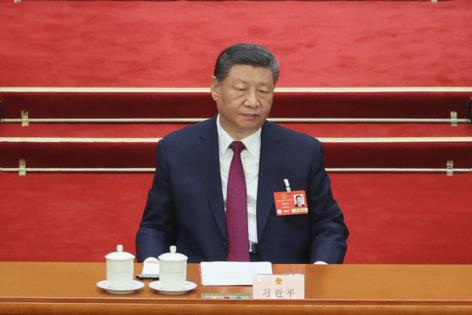China open to talks if US shows respect, names point person
Published in News & Features
China wants to see a number of steps from President Donald Trump’s administration before it will agree to trade talks, including showing more respect by reining in disparaging remarks by members of his Cabinet, according to a person familiar with the Chinese government’s thinking.
Other conditions include a more consistent U.S. position and a willingness to address China’s concerns around American sanctions and Taiwan, said the person, who asked not to be identified to discuss internal thinking.
Beijing also wants the U.S. to appoint a point person for talks who has the president’s support and can help prepare a deal that Trump and Chinese leader Xi Jinping can sign when they meet, the person said.
The fate of the global economy and financial markets hinges in large part on whether the U.S. and China can find a way to avoid a protracted trade war. Trump has hit China with tariffs of 145% on most goods since taking office, prompting Beijing to retaliate and threatening to wipe out most trade between the world’s biggest economies.
The offshore yuan gained 0.2% against the dollar in the wake of the report. The Australian dollar, a China-proxy currency, also advanced 0.5%. S&P 500 Index futures pared losses from as much as 1.6% earlier in the session.
The rapid onslaught of U.S. tariffs has engendered broad public support in China for retaliation, giving Xi a political incentive to rebuff Trump’s repeated demands for a phone call. The U.S. leader on Tuesday again called on China to reach out to him in order to kick off negotiations to resolve the trade fight.
It’s unclear what will produce a breakthrough to get talks moving. While both sides have indicated they’re open to negotiations, Trump appears determined to get Xi on the phone straight away while China wants any conversation between the leaders to produce a clear outcome.
Even then if they agree on process, fundamental questions persist on what any agreement would look like. Trump’s demands remain unclear, and tariff levels on China would need to remain high to achieve his goal of balancing trade and attracting manufacturers to the U.S.
‘Difficult’ road ahead
While both China and the U.S. probably want to see tariff rates lowered due to domestic pressure, negotiations are “unlikely to lead to a meaningful deescalation,” said Michelle Lam, Greater China economist at Societe Generale SA.
“There is a bit more clarity on what China is looking from: respect, consistency and a point person,” she said. “So now the ball is in U.S. court on whether they can meet these demands. But that is still difficult — especially if the aim is to contain China’s rise.”
According to the person familiar with Beijing’s thinking, the most important precondition for any talks is that Chinese officials need to know such engagement will be conducted with respect.
While the president has been relatively dovish when speaking publicly about Xi, other members of his administration have been more hawkish, leaving officials in Beijing unsure of the U.S.’s position, the person said.
Whatever the situation in Trump’s first term, officials in Beijing believe he now has tremendous control over this administration, said the person. As a result, when U.S. officials make pointed statements about China, and Trump doesn’t disavow those views, Chinese officials have assumed the president condones their positions, the person said.
Vance comments
While the person didn’t identify any specific comments by administration officials, Beijing has recently expressed notable displeasure with comments Vice President JD Vance made about “Chinese peasants.” Chinese Foreign Ministry spokesman Lin Jian last week called the remarks “ignorant and disrespectful,” in what was a rare direct rebuke of a senior U.S. leader.
In addition to wanting a consistent message from the U.S. administration, officials in Beijing also want to know that Washington is ready to address some of China’s concerns, the person said. Chief among those is the prevailing perception among Chinese officials that the U.S. has enacted policies designed to contain and suppress China’s modernization.
The U.S. in recent years has tightened export controls around China in an effort to prevent Beijing from obtaining cutting-edge chips and other advanced technology. Trump’s administration on Monday barred Nvidia Corp. from selling its H20 chip in China, escalating the tech fight with Beijing.
Point person
China also wants the U.S. to address its national security concerns, particularly over Taiwan, the person said. Beijing claims the self-governing island as part of its territory and has pledged to take steps, including military action if necessary, to protect those claims. China will not undertake any provocative actions on Taiwan, the person said, but it will respond if provoked.
Finally, Beijing also wants the U.S. to designate a point person to oversee talks, the person said. China has no preference for who that is but they want the person to clearly be speaking and acting with Trump’s authority.
Chinese officials also understand that Trump may want to personally lead the negotiations, the person said. While Beijing would be flattered by Trump wanting to invest his time to such discussions, the person said, China believes the best way forward is for officials designated by the two presidents to oversee the talks.
That would be the most effective way to ensure that negotiations culminated in a meaningful summit between Trump and Xi, the person said.
-----------
With assistance from Wenjin Lv and Fran Wang.
©2025 Bloomberg L.P. Visit bloomberg.com. Distributed by Tribune Content Agency, LLC.







Comments